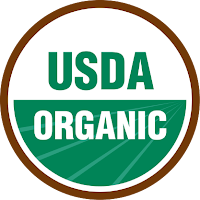Food product certifications
With so many “green” and “eco-friendly” product certifications out there, it can be hard to understand what they all mean. To help sort this out, I have created a list of the most common “green” agricultural product certifications.
USDA Organic - indicates that the agricultural product has been produced through approved methods, including protecting natural resources, conserving biodiversity, and using only approved substances. https://www.usda.gov/topics/organic
Certified Humane –assures the consumer that the food products come from a facility that meets standards for farm animal treatment. http://certifiedhumane.org/
Bird Friendly Coffee - Indicates the farm that grew the coffee is preserving migratory bird habitat by growing a variety of shade trees on the plantation. https://nationalzoo.si.edu/migratory-birds/bird-friendly-coffee
Fair Trade Certified - model of sustainable, ethical trade support responsible companies, empower farmers, workers, and fishermen, and protect the environment. https://www.fairtradecertified.org/why-fair-trade
Marine Stewardship Council – “defines the requirements for fisheries to be certified as sustainable and for business to trade in certified seafood…work with partners to promote sustainable fishing and transform markets”. https://www.msc.org/about-us
Rainforest Alliance Certified – “indicates that a farm, forest, or tourism enterprise has been audited to meet standards that require environmental, social, and economic sustainability.” https://www.rainforest-alliance.org/faqs/what-does-rainforest-alliance-certified-mean
Salmon Safe – “works to keep our urban and agricultural watersheds clean enough for native salmon to spawn and thrive.” https://www.salmonsafe.org/about
Animal Welfare Approved –“food label for meat and dairy products that come from farm animals raised to the highest animal welfare and environmental standards…audits, certifies and supports independent family farmers raising their animals according to the highest animal welfare standards, outdoors on pasture or range.” https://animalwelfareapproved.us/about/
Certified Vegan – indicates the product contains no animal products or byproducts and has not been tested on animals. https://vegan.org/certification/
Food Alliance – “certifies agricultural operations, food processors and distributors that ensure: • Safe and fair working conditions.• The health and humane treatment of farm animals.• Reduced risk from pesticides and other toxic or hazardous materials.• Protection and enhancement of wildlife habitat and biodiversity.• Conservation of soil, water, and energy, and reduction and recycling of waste.• Transparent and traceable supply chains.• Food product integrity, with no genetically engineered or artificial ingredients.• Continual improvement of management practices.” https://foodalliance.org/
With this knowledge, you can make purchases with confidence knowing that you are doing your part to help protect and conserve our natural resources for the current and future generations.













Comments
Post a Comment